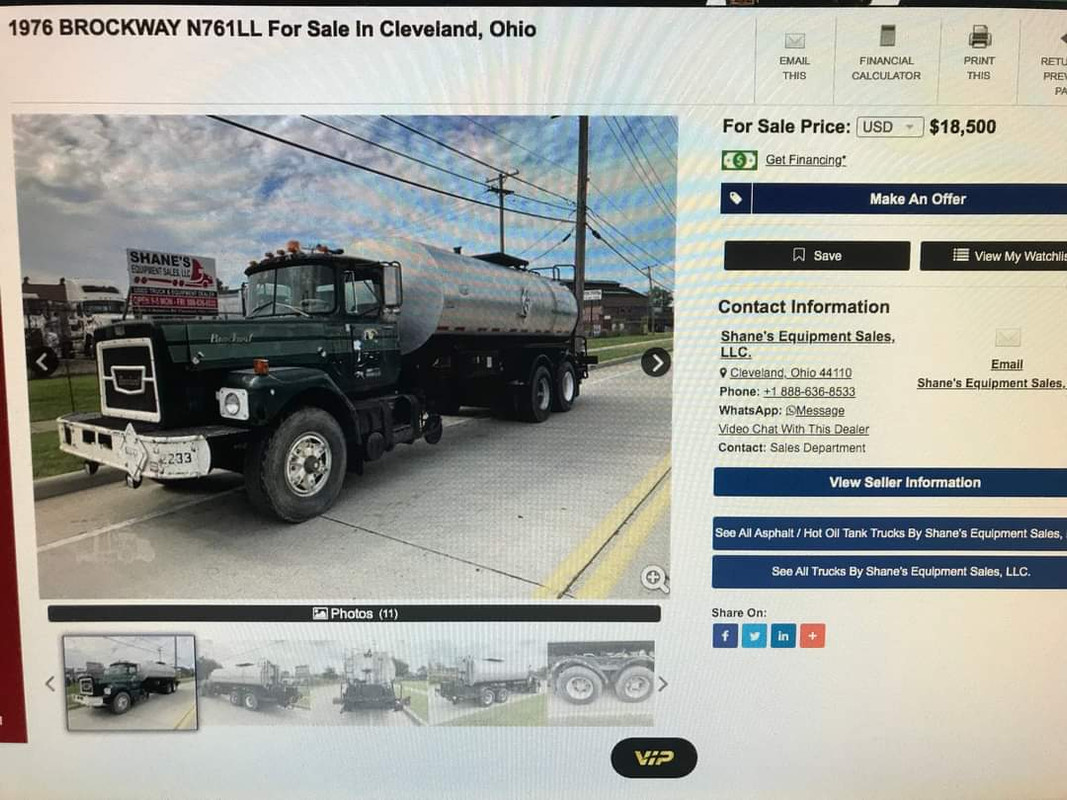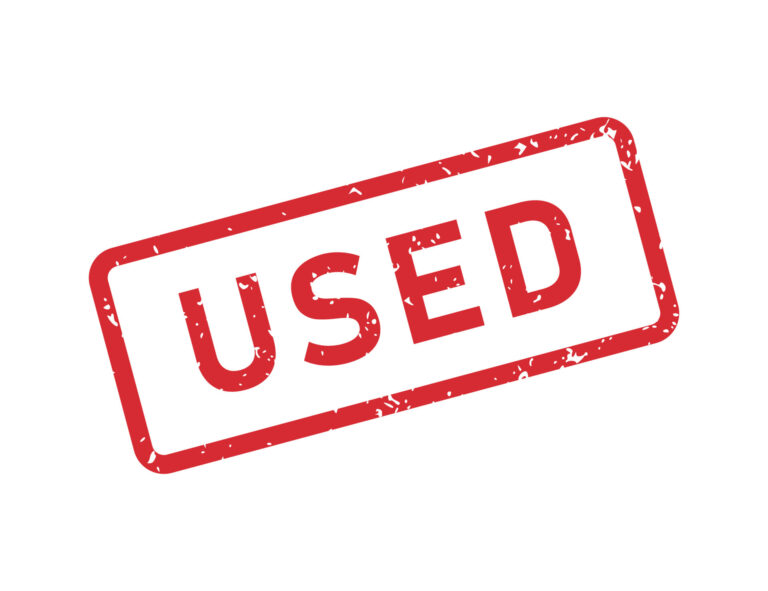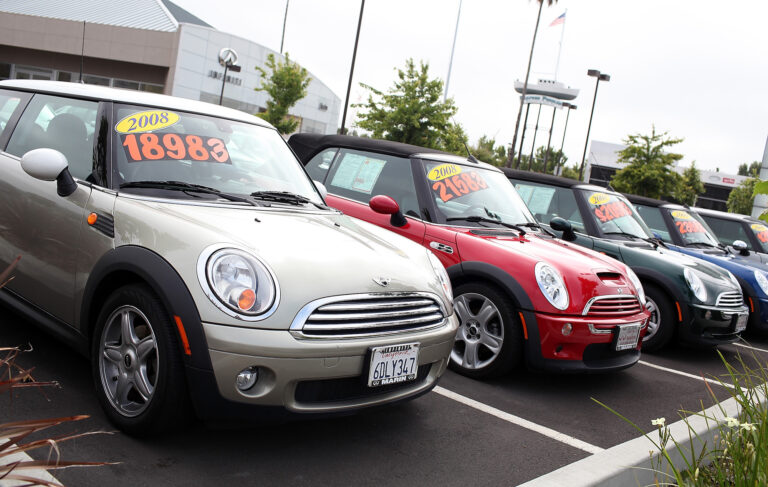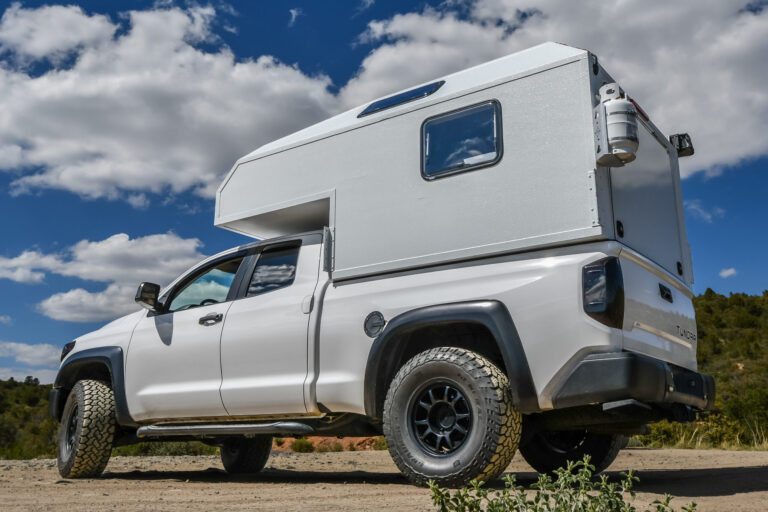Brockway Trucks For Sale: A Comprehensive Guide to Owning a "Huskie" Legend
Brockway Trucks For Sale: A Comprehensive Guide to Owning a "Huskie" Legend cars.truckstrend.com
Introduction: The Enduring Allure of Brockway Trucks For Sale
In the annals of American trucking history, few names evoke as much reverence and nostalgia as Brockway. Founded in 1912 in Cortland, New York, Brockway Motor Trucks carved out a formidable reputation for building incredibly robust, dependable, and often custom-built heavy-duty vehicles. Nicknamed "The Huskie" for their unparalleled strength and resilience, these trucks were the backbone of industries ranging from logging and construction to long-haul transport. Despite ceasing production in 1977, the legacy of Brockway lives on, primarily through a passionate community of enthusiasts, restorers, and collectors.
Brockway Trucks For Sale: A Comprehensive Guide to Owning a "Huskie" Legend
Today, the phrase "Brockway Trucks For Sale" signals more than just a transaction; it represents an opportunity to acquire a piece of Americana, a testament to an era of craftsmanship, and a potential gateway into a vibrant subculture. Whether you’re a seasoned collector seeking a pristine showpiece, a restoration enthusiast looking for a challenging project, or simply someone captivated by the raw power and distinctive aesthetics of vintage heavy trucks, exploring the market for Brockway trucks is an exciting endeavor. This comprehensive guide aims to equip you with the knowledge and insights needed to navigate the unique landscape of buying a Brockway, from understanding their legacy to practical purchasing considerations and beyond.
The Enduring Legacy of Brockway Trucks
Brockway’s appeal stems directly from its unwavering commitment to quality and durability. Unlike mass-produced trucks, Brockways were often custom-built to order, tailored to specific vocational needs. This bespoke approach meant stronger frames, heavier-duty components, and an attention to detail that made them legendary for their longevity. Owners often boasted of Brockways running for hundreds of thousands of miles, tackling the toughest jobs without faltering.
Key elements of their legacy include:
- Robust Construction: Heavy-gauge steel frames, reinforced cabs, and over-engineered drivelines were standard.
- Customization: Brockway’s ability to integrate various engines (Cummins, Caterpillar, Detroit Diesel), transmissions (Fuller, Spicer), and axles allowed for incredible versatility.
- Distinctive Styling: While functional, Brockways possessed a rugged elegance, particularly their iconic dog-house hoods and sturdy grilles, which gave them an unmistakable presence.
- "The Huskie" Mascot: The famous Huskie dog emblem symbolized their strength, loyalty, and ability to pull through anything.

This heritage makes every Brockway truck a piece of living history, a tangible link to America’s industrial past.
Why Buy a Brockway Truck Today?
The motivations for seeking out "Brockway Trucks For Sale" are diverse, reflecting the truck’s multifaceted appeal:

- Collector’s Item: For many, a Brockway is a prized possession, a rare and valuable addition to a vintage vehicle collection. Fully restored examples can command significant prices and win awards at truck shows.
- Restoration Project: The robust nature of Brockways means even severely weathered trucks often retain a solid foundation, making them ideal candidates for ambitious restoration projects. This appeals to those who enjoy the hands-on challenge and the satisfaction of bringing a legend back to life.
- Unique Work Truck: While perhaps not practical for modern fleets, a well-maintained Brockway can still serve as a powerful and unique work truck for specific applications, such as hauling equipment on a farm or pulling a specialized trailer for a small business, often turning heads wherever it goes.
- Show and Parade Vehicle: Their distinctive looks and historical significance make Brockways excellent vehicles for parades, historical reenactments, or simply cruising to local truck meets.
- Investment: While not a guaranteed return, well-preserved or expertly restored Brockways tend to hold or even increase in value, given their finite supply and growing appreciation.

Where to Find Brockway Trucks For Sale
Locating a Brockway truck requires a focused search, as they are not found on every used truck lot. Here are the primary avenues:
- Online Marketplaces: Websites like eBay Motors, Craigslist (locally), TruckPaper.com, My Little Salesman, and specialized antique truck forums often list Brockways. Be prepared for a wide range of conditions and prices.
- Specialized Antique Truck Dealers: A handful of dealers specialize in vintage commercial vehicles. These often have higher-quality, more thoroughly vetted trucks, but at a premium.
- Auctions: Estate sales, industrial auctions, and specialized vintage vehicle auctions (e.g., Mecum, Ritchie Bros. for heavy equipment) can occasionally feature Brockways. Research and pre-inspection are crucial here.
- Brockway Owner’s Clubs and Forums: Organizations like the Brockway Truck Preservation Association (BTPA) and dedicated online forums are invaluable resources. Members often know of trucks for sale before they hit the open market, and these communities can offer expert advice.
- Word of Mouth: Networking within the vintage trucking community, attending truck shows, and visiting restoration shops can lead to hidden gems.
What to Look For When Buying a Brockway: Practical Advice
Purchasing a vintage truck like a Brockway requires a keen eye and a thorough inspection. Here’s a checklist of critical areas:
- Frame Integrity: This is paramount. Check for cracks, severe rust, previous repairs (welds), and any signs of twisting or sagging. A compromised frame is often a deal-breaker.
- Engine and Drivetrain:
- Engine: Identify the engine type (Cummins, Cat, Detroit). Check for leaks, smoke (blue for oil, white for coolant, black for fuel), unusual noises, and overall running condition. Ask about recent maintenance.
- Transmission and Differentials: Listen for grinding, clunking, or whining. Check fluid levels and condition. Test all gears, including reverse.
- Clutch: Check for slipping or difficulty engaging.
- Cab and Body:
- Rust: Brockways were built tough, but rust is the enemy. Pay close attention to cab corners, floorboards, fender wells, door bottoms, and battery boxes.
- Panel Alignment: Look for signs of major accidents or poor bodywork.
- Glass and Interior: Are windows cracked? Is the interior complete? Dash components, seats, and gauges are important for authenticity and comfort.
- Suspension and Steering:
- Springs and Shocks: Check for broken leaves, worn bushings, and leaks in air suspension systems (if equipped).
- Steering: Look for excessive play in the steering wheel, worn tie rod ends, and leaks in the power steering system.
- Brakes: Critical for safety. Check air lines, chambers, drums, and linings. Ensure the air system builds pressure correctly and holds it.
- Electrical System: Test all lights, gauges, wipers, and horn. Look for frayed wires or amateur wiring jobs.
- Tires and Wheels: Check tire condition (cracking, tread depth) and ensure wheels are free of cracks or damage.
- Originality and Documentation:
- Matching Numbers: While not as critical as classic cars, original components can add value.
- Build Sheet/Paperwork: Any original sales invoices, service records, or build sheets are invaluable for understanding the truck’s history and specifications.
- Ensure a clear title free of liens.
Actionable Insight: If you’re not an expert, always arrange for a professional inspection by a mechanic familiar with heavy-duty vintage trucks. Their expertise can save you from costly mistakes.
Common Models and Their Appeal
While many Brockway models were produced, some stand out in the collector’s market:
- 260 Series: Often seen with conventional cabs, these were versatile workhorses, popular for dump trucks, tractors, and straight trucks.
- 361 Series: A classic Brockway, known for its long, distinguished hood and often equipped with powerful engines. These are highly sought after as road tractors.
- 761 Series: Another popular tractor model, often featuring a shorter hood than the 361, but still retaining that classic Brockway ruggedness.
- Husky Series: While "Huskie" was the general nickname, some models were specifically branded with the Husky name, emphasizing their strength.
Each model carries its own unique charm and history, often influencing its market value and desirability.
Restoration vs. Ready-to-Work: States of Brockway Trucks For Sale
Brockway trucks on the market typically fall into a few categories, each with different implications for the buyer:
- Project/Parts Truck: These are often the most affordable but require extensive work. They might be non-running, have significant rust, or be incomplete. Ideal for experienced restorers or those seeking parts.
- Running Driver (Needs Work): The truck runs and drives, but likely has mechanical issues, cosmetic flaws, or safety concerns that need addressing. A good option for those who want to start using the truck while gradually restoring it.
- Good Original/Lightly Restored: These trucks are functional, presentable, and largely original, or have undergone minor repairs/refurbishment. They are ready to enjoy with minimal immediate investment.
- Professionally Restored/Show Quality: These are the pinnacle, having undergone meticulous, often frame-off restorations. Every detail is perfect, and they are ready for show fields. These command the highest prices.
Important Considerations & Challenges
Buying a Brockway isn’t without its challenges, which must be weighed against the rewards:
- Parts Availability: While many components (engines, transmissions, axles) are common to other trucks of the era, Brockway-specific parts (cab sheet metal, trim, emblems, unique brackets) can be incredibly difficult to find. Networking with clubs and searching salvage yards are essential.
- Specialized Mechanics: Finding mechanics experienced with vintage heavy trucks, particularly air brake systems and older diesel engines, can be challenging outside of major metropolitan areas or dedicated restoration shops.
- Cost of Restoration: A full, professional restoration can easily cost tens of thousands, or even hundreds of thousands, of dollars, often far exceeding the initial purchase price of a project truck. Be realistic about your budget and skill level.
- Storage and Transport: These are large vehicles, requiring significant space for storage and specialized transport if not roadworthy.
- Fuel Economy and Emissions: Older trucks will not meet modern fuel efficiency or emissions standards. Factor in higher fuel costs and potential restrictions in some areas.
Tips for a Successful Brockway Purchase
- Do Your Homework: Research the specific model you’re interested in, common issues, and market values.
- Set a Realistic Budget: Account for the purchase price, transport, potential repairs, and ongoing maintenance.
- Be Patient: The right Brockway won’t appear overnight. Wait for the truck that meets your criteria and budget.
- Inspect Thoroughly (or Hire an Expert): Do not skip this step. Pictures can be deceiving.
- Join the Community: The Brockway Truck Preservation Association (BTPA) and online forums are invaluable for advice, parts leads, and camaraderie.
- Verify Documentation: Ensure a clear title and any available historical paperwork.
Brockway Trucks For Sale: Estimated Price Guide
It’s crucial to understand that prices for Brockway trucks vary dramatically based on condition, originality, model rarity, engine/driveline specifications, and market demand. The table below provides estimated ranges and should be used only as a general guide. Actual prices can fall outside these ranges.
| Condition Category | Description | Estimated Price Range (USD) | Key Considerations |
|---|---|---|---|
| Project/Parts Truck | Non-running, significant rust, incomplete, seized engine, or major damage. | $5,000 – $15,000+ | High restoration cost; best for experienced restorers or for salvaging parts. |
| Running Driver | Runs and drives, but needs significant mechanical work, body repair, or paint. | $15,000 – $40,000+ | Requires substantial investment of time and money to bring to good condition. |
| Good Original/Lightly Restored | Functional, presentable, mostly original with some repairs/refurbishment. | $40,000 – $70,000+ | Can be driven and enjoyed immediately; minor issues may still exist. |
| Professionally Restored/Show Quality | Frame-off restoration, meticulous detail, excellent mechanical and cosmetic condition. | $70,000 – $150,000+ | Ready for shows; highest initial cost, but potentially strong value retention. |
| Rare/Specialty Models | Exceptionally rare configurations, unique historical significance. | $150,000 – $250,000+ | Highly sought by serious collectors; price depends heavily on provenance and condition. |
Disclaimer: These are highly variable estimates. Market conditions, specific engine/transmission configurations, and the emotional value to a buyer can significantly impact the final sale price. Always conduct thorough research and inspection before making an offer.
Frequently Asked Questions (FAQ) About Brockway Trucks For Sale
Q1: Are Brockway trucks still reliable today?
A1: With proper maintenance and restoration, many Brockway trucks can be very reliable. Their robust, over-engineered components were built to last. However, they require consistent attention and understanding of older mechanical systems.
Q2: How difficult is it to find parts for a Brockway?
A2: Common mechanical components (engines, transmissions, axles, brakes) are often shared with other period trucks and are relatively available. However, Brockway-specific body panels, trim pieces, emblems, and unique interior parts can be very difficult to locate and may need to be custom-fabricated or sourced from salvage trucks. Joining the Brockway Truck Preservation Association (BTPA) is highly recommended for parts sourcing.
Q3: Can I use a Brockway for commercial work today?
A3: While mechanically capable, using a vintage Brockway for full-time commercial work can be challenging due to modern regulations, fuel efficiency, and the availability of parts/service. They are more commonly used for light-duty work, parades, or as unique marketing vehicles.
Q4: What’s the best engine for a Brockway?
A4: Brockways were factory-equipped with various reputable diesel engines, including Cummins, Caterpillar, and Detroit Diesel. The "best" depends on your intended use. Cummins NTC series and Detroit Diesel 6-71 or 8V-71 were popular and are generally well-regarded for their reliability and power.
Q5: Is there a community for Brockway owners?
A5: Absolutely! The Brockway Truck Preservation Association (BTPA) is a very active and welcoming community. They hold annual shows (like the National Brockway Truck Show in Cortland, NY), offer technical advice, and help members connect for parts and camaraderie.
Q6: What should I expect in terms of fuel economy?
A6: Don’t expect modern fuel economy. Older diesel trucks, especially heavy-duty ones, typically achieve anywhere from 4 to 8 miles per gallon, depending on engine, load, and terrain.
Conclusion: The Journey of Owning a Brockway
Acquiring a Brockway truck is more than just buying a vehicle; it’s investing in a piece of industrial heritage, embracing a unique challenge, and joining a passionate community. From the thrill of the hunt to the satisfaction of bringing a legend back to its former glory, the journey of owning a "Huskie" is deeply rewarding.
While the path to ownership involves careful consideration of condition, cost, and the realities of vintage vehicle maintenance, the distinctive roar of a classic diesel engine, the commanding presence of its rugged design, and the stories embedded in every rivet make it all worthwhile. Whether your Brockway becomes a show-stopping masterpiece, a cherished weekend driver, or a testament to your restoration skills, it will undoubtedly be a conversation starter and a constant reminder of American ingenuity and perseverance. For those seeking "Brockway Trucks For Sale," the adventure awaits.






